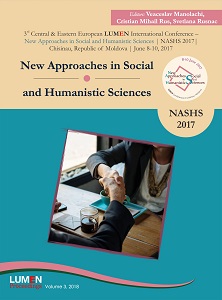The New Trends in Medicine and Trust
The New Trends in Medicine and Trust
Author(s): Anna Liadova
Subject(s): Essay|Book Review |Scientific Life
Published by: Editura Lumen, Asociatia Lumen
Keywords: trust; medicine; doctor-patient relationship; informed consent anthropology.
Summary/Abstract: Ever the last years, the Russian National Health Care System has undergone a number of great changes. These reforms are motivated by the whole transformation of medicine as a social institute. As it showed by the numerous studies, under the process of the globalization and new technologies the clinical practice has been changed. The high technologies in medicine have incorporated new trends in practice and lead to use exactly hard evidence for diagnosis and treatment. But spending on new health technology increases healthcare costs. Now the main trend is the standardization of practice, that is relied on evidence-based medicine as it reduces costs. The great damage to the physician-patient relationship in these movements is that the patient is considered secondary, without attention to his individual characteristics and needs. It ignores the individuality and leads to the uniformity. It affects the doctor-patient relationship. As it well known, trust is a keystone of effective doctor-patient relationship. It may be considered as a belief of an individual that trustee will care of his (a patient’s) needs and interests. But, under the modern trends in medicine, there has been changed the doctor-patient relationship. The paternalistic model has been evolved into the new form based on a personal informed consent. And now the question is that what role trust plays now? Based on the data of the sociological research, it was revealed, that over last years, the public trust to doctors and the national health care system has been unsatisfied and unstable. So, it may be pointed out, that the informed consent could not be only legal compulsion and defence for doctors in case of adverse treatment outcome. It is also an ethical obligation as no consent could not be an insurance for doctors to avoid legal liability. So, mutual trust as a keystone of doctor-patient relationship has been still actual for the current concept of the social interaction in medical practice.
Book: New Approaches in Social and Humanistic Sciences - NASHS 2017
- Page Range: 266-273
- Page Count: 8
- Publication Year: 2018
- Language: English
- Content File-PDF

